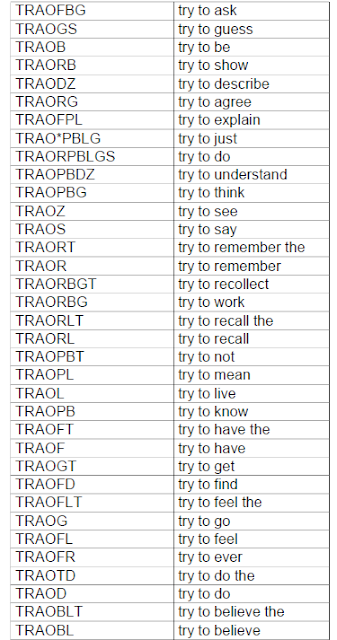I recently purchased a book written by Ed Varallo. It was mind blowing!
I'm developing more strategies for keeping pace with all these fast speakers.
I write "evidence" EFDZ -- some people use EFD, so you can obviously adapt this concept to what works for your writing style.
Hopefully, in school, you were taught some basic phrases with the word evidence.
direct evidence DREFDZ
circumstantial evidence SEFDZ
preponderance of the evidence PREFDZ
greater weight of the evidence GREFDZ
I then developed a couple of additional phrases due to my work exposure to these:
tampering with evidence TWEFDZ
credible evidence KREFDZ
competent evidence KPEFDZ
Ed's book expanded the possibilities. He writes evidence EFD, so mine is just a tad different.
Phrases with the word evidence:
any evidence NEUFDZ
best evidence BEFDZ
some evidence SMEFDZ
clear and convincing evidence KLEFDZ
in evidence NEFDZ
received in evidence SNEFDZ
forensic evidence FREFDZ
convincing evidence KWEFDZ
weight of the evidence WEFDZ
Yesterday's hearing, the magistrate started using a new phrase -- admissible evidence - ARGH!
So...my brief for admissible evidence...DMEFDZ
I'm still debating whether I'll incorporate a couple of the others that are in Ed's book.
Is there any evidence STHREUFDZ
is there evidence STHREFDZ
was there any evidence STHR*EUFDZ
was there evidence STHR*EFDZ
I highly recommend getting his book. Edvarallo.com is where it you can find it. It's temporarily reduced in price -- a COVID special. :)





